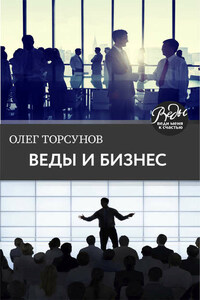COPYRIGHT
William Collins
An imprint of HarperCollinsPublishers Ltd.
1 London Bridge Street
London SE1 9GF
www.harpercollins.co.uk
First published in Great Britain by HarperCollinsPublishers 1997
Copyright © Margaret Anne Doody 1996
Margaret Anne Doody asserts the moral right to be identified as the author of this work
All rights reserved under International and Pan-American Copyright Conventions. By payment of the required fees, you have been granted the nonexclusive, nontransferable right to access and read the text of this ebook on-screen. No part of this text may be reproduced, transmitted, downloaded, decompiled, reverse-engineered, or stored in or introduced into any information storage and retrieval system, in any form or by any means, whether electronic or mechanical, now known or hereafter invented, without the express written permission of HarperCollins ebooks
HarperCollinsPublishers has made every reasonable effort to ensure that any picture content and written content in this ebook has been included or removed in accordance with the contractual and technological constraints in operation at the time of publication
Source ISBN: 9780006863793
Ebook Edition © DECEMBER 2016 ISBN: 9780008240653
Version: 2017-01-06
PRAISE FOR THE TRUE STORY OF THE NOVEL
Margaret Anne Doody is Andrew W. Mellon Professor of Humanities and Professor of English at Vanderbilt University, USA, where she is presently Director of the Comparative Literature Program. She is the author of several books, including the novel Aristotle Detective, and a biography of Frances Burney.
from the reviews:
âDoody makes out a strong case for taking the ancient novel seriously ⦠(in) a rich mine of information, with a commendable attempt to analyse the literary devices through which the great novelists have lifted prose from plain narrative into â into what? That is the question.â
ROGER SCRUTON, The Times
âE M Forster sighed regretfully on behalf of Bloomsbury: âOh dear, yes â the novel tells a story.â Doodyâs thesis is, yes, it damn well should tell a story because narrative is an essential tool for coming to terms with the human condition. She believes that fiction, far from merely expressing delicate nuances of feeling (as Forster and his cronies preferred), needs to range not just over birth, copulation and death, but to encompass a host of powerful archetypes through which we express our pain, individualism and hopes ⦠There should now be a symposium in which practising novelists and critics debate her main propositions.â
HUMPHREY CARPENTER, Sunday Times
âThe novel continues in rude health. Those who wonder about its form, its origins, its curious staying power, will find fine entertainment in this sprawling look at its ancient roots.â
The Scotsman recommends
âShe impressively spans the centuries of fiction ⦠Doody is astonishingly well-read and admirably readable on the evolving forms of fiction.â
ALAN BOLD, Glasgow Herald
âSection by section the book is very good, (with) considerable scholarship and a wealth of information about classical scholarship.â
BRIAN MORTON, Scotland on Sunday
Margaret Anne Doodyâs book on the prose fiction of the ancient world puts us back in touch with a group of texts which have never been part of the official canon. She makes us want to go back and read Chariton and Dionysius and Achilles Tatius ⦠Her aim is to knock a hole in the traditional critical view which defines the novel in the terms of what a few white men wrote in England in the mid 18th century. And she shatters that distinction between Romance and Novel on which this imperial claim is based ⦠Prigs have always hated novels â and almost always in the same terms. Doody catalogues sneers which have followed the novel like chewing gum on its shoe. It is condemned as trivial, feminine and bourgeois by the Emperor Julian the Apostate, English Puritans and radical feminists â Doody replies to them attractively, and a good job too. This is a generous-minded book.â
ROZ KAVENEY, New Statesman
âThe True Story of the Novel, Ms Doodyâs big, passionate study, a literary counterpart to Martin Bernalâs Black Athena, is a bold and contrary statement.â
SCOTT HELLER, The Chronicle of Higher Education
âDoodyâs narrative is smooth-flowing, at times, downright thrilling (exhibiting) most controversial and revelatory insights ⦠her readings are dazzling. The True Story of the Novel will most surely upset the easy acceptance of the abridged âstoryâ of the novel that has held sway in the academy for so long.â
MAUREEN CORRIGAN, Newsday
âMargaret Anne Doody is not a critic who minces words. In this vibrant book, she makes a case for the restoration of breadth to the teaching of literary history. She should be heeded.â
JOHN SUTHERLAND, New York Times
âWonderful and truly revolutionary. With fascinating detail Doody obliterates the arbitrary distinction between the Novel and Romances. After the publication of her work, it will become impossible to shut away the novels of late antiquity as distant and disreputable. They will have to be recognized not merely as ancestors, through such authors as Boccacio and Cervantes, but as living participants in a rich and thoroughly subversive literary genre.â








